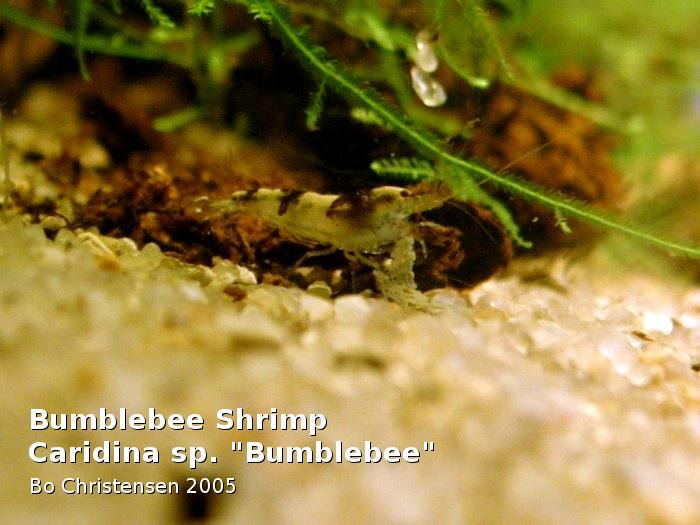Anyway, I was puzzled that they were of two different colors, almost as if they were two different species. When I look in the shrimp varieties page, it does state "It is not clear if the many color variations on the market lately (mostly in Asia and Europe, but some also in the US) are selectively bred variations of the Bumblebee Shrimp or hybrids."
Out of the five Bumblebee I purchased, two were similar to an earlier picture (which no longer shows) in the Varieties page, I presume these are what they look like in the wild?:
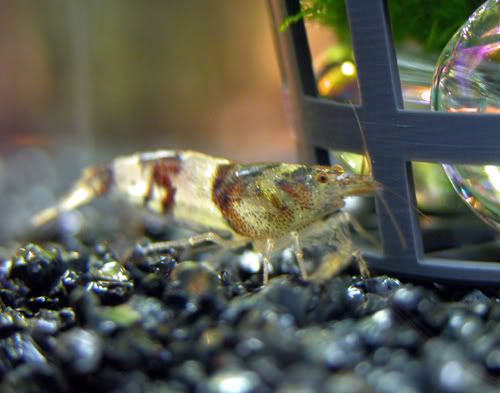
However, the other three shrimp were a color I've not seen pictures of online. These had patches of opaque yellow as opposed to the translucent yellow/white. No sign of the powder-coat white that I've seen in other people's pics. I personally liked the yellow; it better represents their "Bumblebee" name.
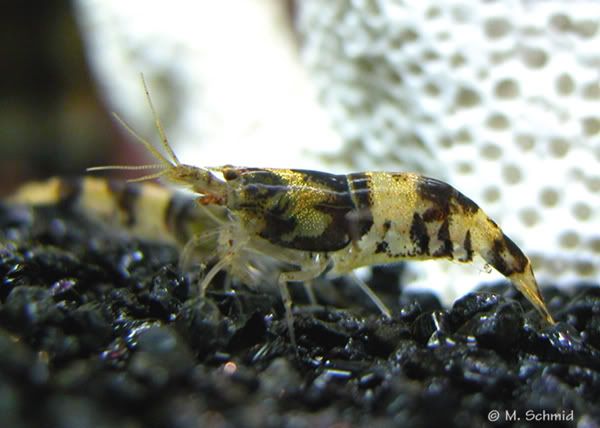
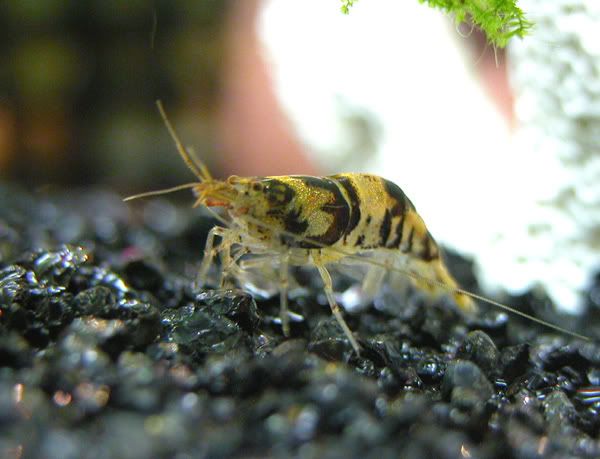
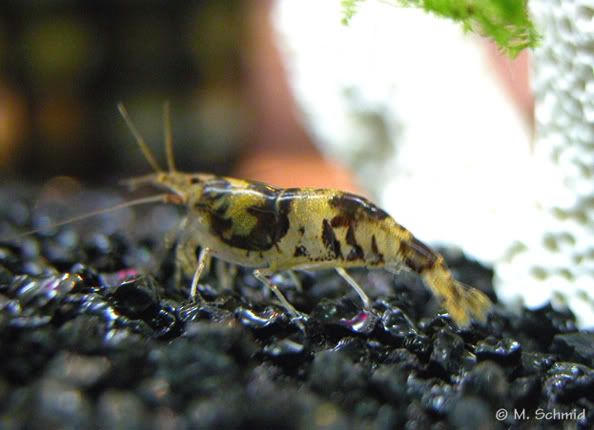
Top view:
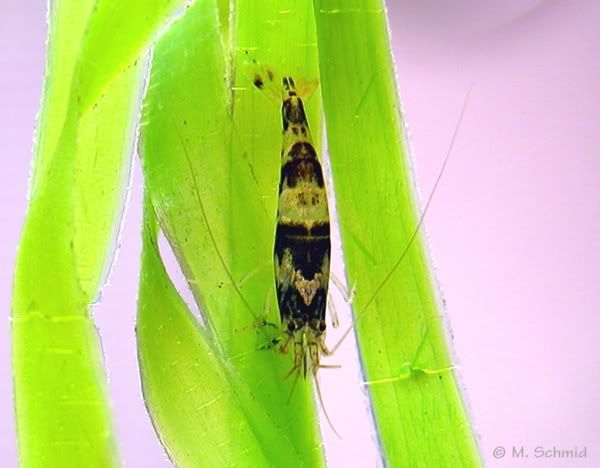
With this color variation, do you think they're wild-caught or bred? The info I got from the semi-LFS was that they're wild-caught, but I don't know if the person really knew. Or perhaps they are stressed/sick from having just been imported before I bought them? Or is this color variation quite normal, among the "many color variations" available to them, and if so, does that mean they were either selectively bred or possible hybrids? Thanks for any info or experiences, even info concerning what conditions you've found helps them thrive, i.e., PH, temp, water hardness, etc.
While searching back topics I got the impression there's still very little known about the origins and variations of this species.
-GB





